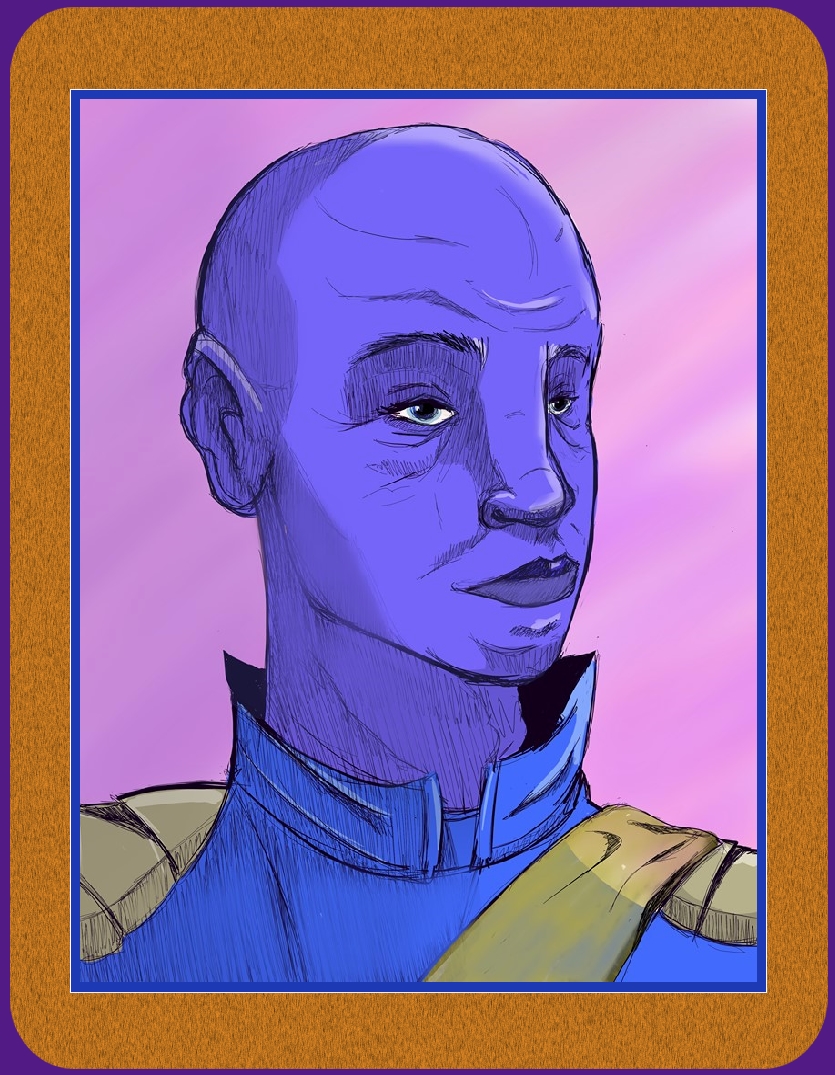
(Omal gives a course on the correlation between the human mind and a computer. He also expands on the idea to predicting the future today from twenty years ago in how our technology has advanced with a fair bit of accuracy. It is the advancement of our technology and where it goes from there that will define us as a species.)
Omal: let us open the floor up immediately to answering question sessions.
Russ: okay, on the question side, Tia and I were working on the technology of third dimensional earth and the way it relates to the way how the earth is progressing. I would like to work on a little bit of the conscious and psychic side of the world that is a result of this.
Omal: okay and your question is?
Russ: how do the two interrelate?
Omal: well technology is certainly something that can be used. There are two sides to this, one is that technology takes away stimulus and therefore decreases spiritual growth and on the other side it increases it. Now the question is why is there the two different points of view? Well if you are sitting at a computer screen watching flickering images and manipulating keys, you are certainly missing out on a lot of stimuli from external sources, from the real world. But on the other side, you are constantly using your mind, you are constantly learning new things. You take on the characteristics of the computer world or the cyber world to constantly upgrade. Upgrading is up-learning, continually learning new things even though it is not coming from external sources. So the technology boom is beneficial and negative. Its sixth dimensional nature or behavioral patterns that it starts to create, certain moral values, certain moral behaviors, the constant drive for advancement are positives. The lacking in stimuli of external world, interaction with other people, learning other things also is important but these factors play together. If you take both, the external and the cyber world and run them together, it stimulates you in such a way that you use the computer behavioral patterns in your normal life which in turn causes upgrading or learning, interaction, stimulation and understanding.
Russ: all right, I'd like to address that if I could.
Omal: certainly.
Russ: computer behavioral patterns. Now, for those such as myself who are laymen as far as that term goes, I wonder if you could explain that a little bit and how it relates to the human being?
Omal: okay, computer behavioral patterns. Computer behavioral patterns are the necessary drive for advancement, logical thinking, one step leads to the next logical step. Logical processes, one plus one equals two, one and zero, on and off, stimulation of the mind. The comparisons between the connections on a motherboard and the connections in the mind. The speed and thought processes of both the human brain and the computer brain. The development of both running concurrently and separately. The development of both running together. These are computer behavioral patterns, the logical analyzation of a situation, the logical outcome, the behavior of right or wrong, these are what I'm saying.
Russ: oh. Okay now for more than 30 years, the world has been influenced and almost controlled by the advent of the television and its media.....I'll say mind washing but it's a rather strong term for what is actually taking place.
Omal: 40 years actually.
Russ: 40 years. Now we have the Internet, we have computers, we have a trend that is looking at blending television, the Internet, phones and so on into one mainstream form of communication, learning and interaction.
Omal: uh-huh.
Russ: now would you see that then as then we are progressing from a point that we maybe got to and were stagnant at?
Omal: no, for the simple reason that as the popular medium of the last 30, the last 40 years....you have me at it now......has been advancing steadily and slowly from flickering tubes in black and white to color tubes flickering to crystal-clear pictures to the computer to integration of the computer, the communication medium and wired communication.......telephones all funneling together at the same time. A gentleman, Mr. Babbage, developed the first computer back in the '30s at about the same time that your television came into being. They have grown together, refined and developed more rapidly, as one progressed the other progressed. In '79, development and research led to the development of the microchip which went into digital watches, televisions, telephones, computers. Computers at that point were large clunky objects. Certainly they had modems, certainly they were plugged into networks but very primitive networks, much like primitive transmission stations for projecting pictures and images. Now they use fiber-optic cable for transmission of picture and images that are no longer being transmitted into the atmosphere in such large quantities. The computers are now linked into very professional, but still needing refinement, networks. So the development of both has been at an accelerated rate which is compatible, they have run parallel courses. Where do they go next? Next question.
Russ: okay, one of the things I've been working with with a friend of mine is the future of the world and where it's going to next.
Omal: uh-huh.
Russ: my comment as we've discussed before is that there have been many civilizations on this planet.
Omal: uh-huh.
Russ: there are none of those civilizations still here but their remnants and the memories of those are very much with us to this day.
Omal: to use an interesting quote, it is sometimes wondering with the rise and fall of so many civilizations that if your planet could speak, would it be something akin to being seasick or time sick?
Russ: (chuckes) quite correct. One of the points I made is in 50 years, someone's going to say, "remember when there used to be things like ATM's?"
Omal: uh-huh.
Russ: my question is then, how close are we to actually that particular scenario?
Omal: closer than you would imagine. Okay, let us look at something.
Russ: okay.
Omal: okay, now you'll notice that I am rolling up the sleeve
(Rolls up Mark's left sleeve)
Omal: okay this, what is this?
Russ: digital watch.
Omal: what is inside it?
Russ: a crystal that controls the amount of time that passes for every second.
Omal: which is controlled by what?
Russ: a electrical.....
Omal: controlled by?
Russ: a battery.Omal: and also in here is?
Russ: another microchip?
Omal: correct. Within this, the microchip and this system, there is the potential for this to be as powerful as that on your lap (a laptop.) and to do far more. This, with a simple wire or a simple adapter if I place it back on the wrist and demonstrate, two little plugs attached to where these buttons or either side of them, a little clip in, you are now connected to the Internet. A few buttons here using these, very little change. You can talk to your watch which in turn takes the vocalizations into a computer that you have relayed to. With certain signatures that are run throughout everybody, your body, the host body, the person that will be reading this, the person that will be listening to this, their bodies have certain signatures that are for them only. Certain heat, certain vibrations, certain genetic material. You plug in, you are now connected to the World Wide Web from a terminal. "I am at a requisition place for produce, I am purchasing a supply of food. The quantity is 29 dollars and 20 cents. I authorize this." Or, the computer that you have just plugged into tells your computer that you have these items, it then asks you is this okay? You okay it, the information is transferred from the computer you have plugged into, into your bank computer, your bank computer tells the computer that you have A, enough money B, not enough money. You have now purchased a supply of food and all's you have done is just plugged it in and said the word okay or hit a button that says yes or no. That is closer than you think. A card this size (holds up a business card) could quite possibly have as much information stored on it as you wish. Within the next 20 to 30 years, personalized cards that are as powerful as your laptop will be available. Not the cards themselves being that powerful but what they can access. And they will be very cheap, they will be able to access your bank account, your medical records, they will have your medical records on them. They will have your personal finances on there. They will have your police record, they will have your Social Security record, they will have your history of your occupations and so on. These are very close, 20 to 30 years into the future they will start to become common. With liquid crystals you could actually put a small monitor in there and be able to communicate much like a telephone. Yes?
Russ: at Comdex (a computer expo), I saw screens the size of my watch face.
Omal: correct.
Russ: okay last question.
Omal: okay.
Russ: how is it that we're actually going to have time to do all this if Tia's predictions or scenarios are coming true?
Omal: ahhhh....I'm glad you brought that up. Okay, what we are doing is we're focusing on the sunny side. We are focusing on the necessary drive for technological advancement. On the negative side, certainly some of these if not all of these things will happen but with the alternative side, we have looked only at the sunny side. What is the negative side? How does the negative side come into play in this? What can these things do? How can they interact? How can they be used for control? How can they be misused? How can they be subverted? What harm can they do?
Russ: hmmm......thank you Omal.
Omal: you're welcome. Live long, prosper, and I'll be back.
